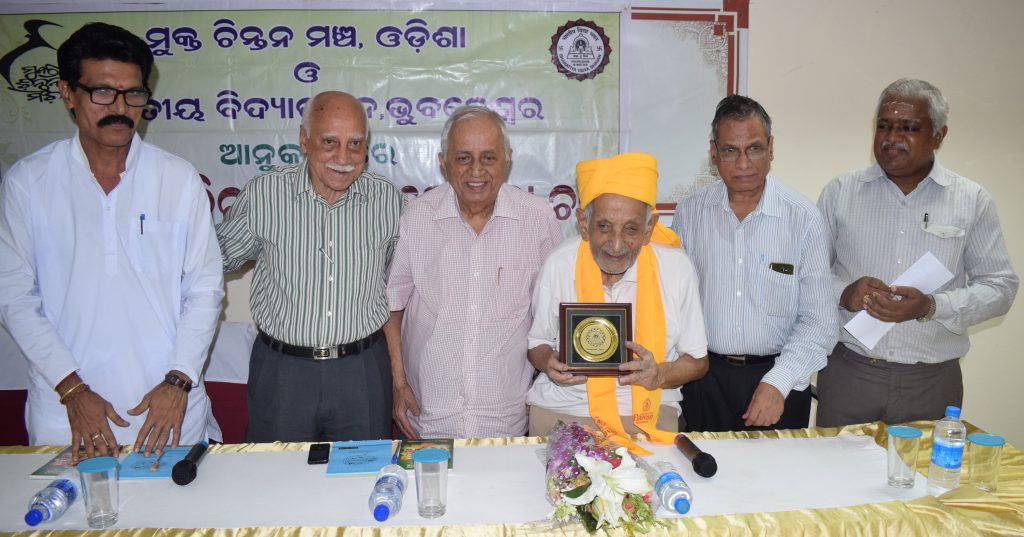Bhubaneswar: Mukta Chintan Mancha in collaboration with Bharatiya Vidya Bhawan, organised a discussion on Bhagavad Gita here Tuesday.
Former head of philosophy department of Utkal University, Gauranga Charan Nayak who was invited as the chief speaker of the programme said Gita encourages free thinking. Achievements and failures come in everyone`s life and if you do not have the ability to face the failure, you cannot achieve anything in life.
Participating in the deliberations, Ayurvedic Research Institute director Gopal Chandra Nanda said according to Gita, one must follow certain principles in life to lead a happy and healthy life. We should take controlled diet, consume food on time and sleep the exact number of hours. Several people in the world are suffering from various diseases as they do not follow the basic rules of life. People know what is good and what is bad for health, but they consume junk food, tobacco and alcohol to the detriment of their health.
The programme commenced with a bhajan sung by Damodar Senapati and Amitaprabha Swain.
Mukta Chintan Mancha Samman was conferred on Gauranga Charan Nayak.
Mukta Chintan Mancha secretary Pitabash Routray welcomed the gathering and introduced the guests. Author and president of Mukta Chintan Manch Satakodi Hota presided over the proceedings.
Major General Basant Kumar Mohapatra said Gita advocates performance of duty (Karma) to the best of one’s ability. No job is big or small and no one is above or beneath as all are equal in the eyes of God. He also discussed some chapters of Bhagavad Gita.
He said chapter 1 of the Scripture says our wrong or negative thinking is at the root of all our problems. Chapter 2 states that right judgment is the ultimate solution to all worldly problems. In chapter 3 Gita states that real progress in life is possible when we work without ‘self’ and without any desire for personal prosperity. Chapter 4 of the text suggests that every act of life can become a prayer. Renunciation of individual ego and rejoicing in the bliss of infinity is the summary of chapter 5 while chapter 6 advocates connection with the cosmic being on a daily basis.
“Live what you learn,” is the sum total of chapter 7 and chapter 8 suggests that one should never give up despite failures. Chapter 9 advises that we must value our blessings and similarly ‘curses’ will have impact in life. And ultimately, Chapter 18 focuses on communion and union with God, the supreme soul, Mohapatra added.
